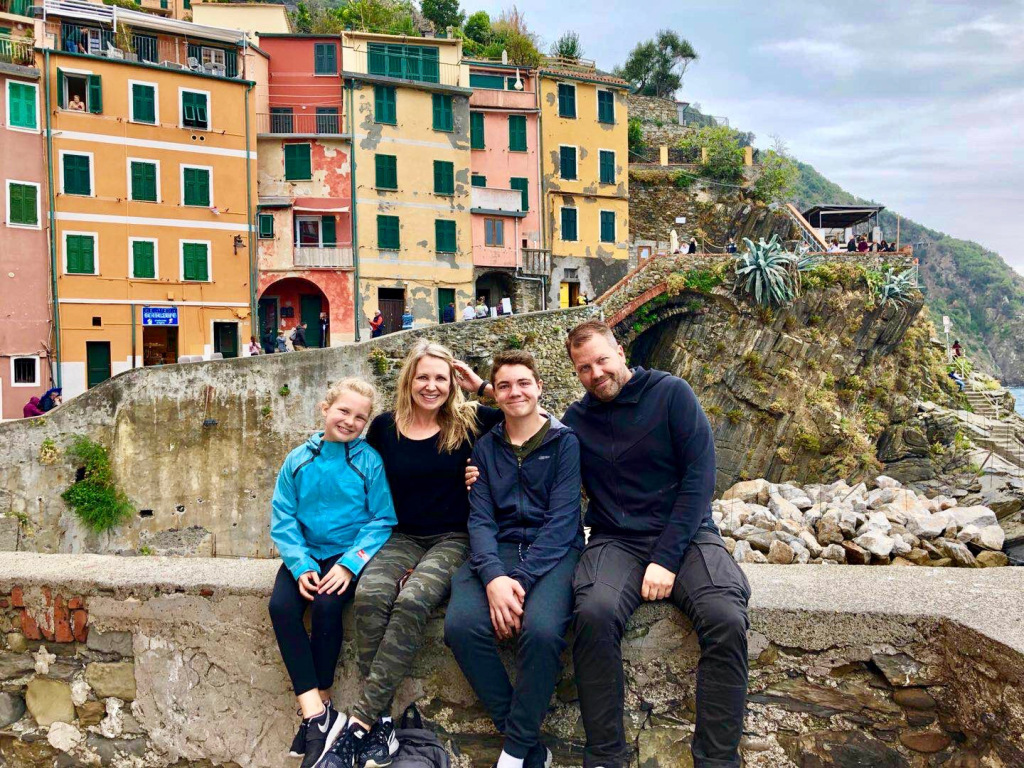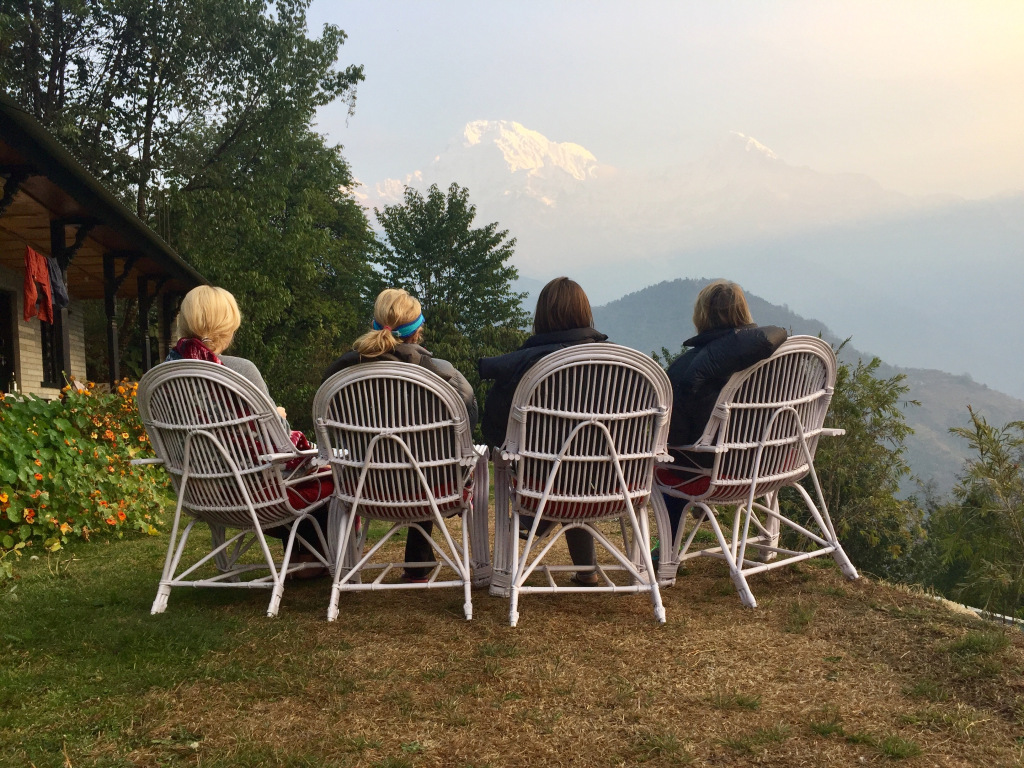Social distancing, digitally connecting, stockpiling supplies, wearing masks, homeschooling, working from home? My expat friends were the first to settle into these new norms, and are now seemingly unfazed. Meanwhile, my American friends who’ve never lived overseas were panicked or in denial from the start of this global coronavirus pandemic — and, weeks later, are still resisting new routines.
This has made me pause and ask: What really sets these groups apart? What critical skills have expats — trailing spouses, especially — mastered that are just now being learned by others facing unprecedented uncertainty for the first time?
Opening Our Minds
The first lesson is a sense of perspective. In my case, each of our overseas relocations — prompted by my husband’s career progression with a footwear and apparel company— ultimately benefited our entire family, both by improving our finances and broadening our horizons. His first assignment, moving us from Portland, Oregon to Tokyo, Japan, came when we were both overworked young professionals with a toddler and a newborn. As an exhausted new mom, I embraced this move a welcome escape hatch from my advertising career, although the timing was a bit tricky. (I would rate this a 12/15 on the Gupte Scale, in second place compared to our subsequent 14/15 move to Shanghai and 11/15 move to Amsterdam.)
For 10 years, expat life opened my eyes to situations I couldn’t have imagined as a girl growing up in rural Oregon, where the nearest mom-and-pop grocery store was a 15-minute drive away, and as a state college student on a cobbled-together plan of grants, scholarships and loans. Back then, the idea of living overseas was completely foreign to me — something I associated with affluence and privilege. Now I truly believe that living abroad should be a requirement for everyone; even my least desirable experience, a 9-month stay in Amsterdam, taught me valuable lessons.
While we’re all sheltering in place, consider where you’d like to live if you could go anywhere in the world. Once travel bans are lifted, try immersing yourself deeply into another country’s food, culture, history, language, and civic life. (In the meantime, check out foreign language apps, streaming travel shows, and international recipe websites.) If you’re like me, personally experiencing the benefits offered by different forms of government — universal healthcare in the Netherlands, public safety in China — will help make you a more informed citizen back home.
Embracing New Normals
The next lesson, learned the hard way, is resiliency. We know that with every unorthodox transition flows a pattern: preparation, honeymoon, culture shock, adjustment. Ironically, moving your whole lifestyle to a tiny mostly-indoors geographic footprint, thanks to COVID-19 lockdowns, has felt like immigrating all over again. Those of us who have moved abroad knew to prep first, disregard the misleading vacation sensation, and move quickly into understanding and embracing our new normal.
Stuff happens when you’re overseas. Whether it’s dealing with weeks of purple Air Quality Index (AQI) days in Delhi, India, or the daily threat of being carjacked in Sao Paulo, Brazil, expats around the world have developed coping mechanisms and survival skills that defuse the terror of feeling out of control in uncertain times. In March 2011, my family lived through Japan’s 9.1 earthquake, tsunami and nuclear meltdown. We watched other expats evacuate; those of us who stayed stocked up on toilet paper (sound familiar?) and other supplies, and hoped for the best.
The world is full of historic events and we are part of a larger story — if we just hold on tight and ride it out.
Making It Work
On a more routine basis, trailing spouse life means learning how to find creative alternatives to our household’s creature comforts. We’re a resourceful lot, using our ingenuity and skills to figure out replacements, substitutions, digital or homemade versions — or learning to live without them. No yeast available for bread? Okay, we’ll make tortillas. The gym is closed? Fine, we’ll download a new fitness app or stream our yoga teacher on Zoom. We know that a dead end isn’t really dead; it means it’s time to go with Option B, C, or D.
We also appreciate the value of community, which I’ve found to be one of the top leading success indicators of both overseas assignments and sheltering-in-place. When you feel isolated, incompetent and uninformed, a kind word from an empathetic face is an important source of strength — even if it’s on a smartphone screen these days. (Conveniently for our current circumstances, expats are experts at socially connecting while physically distancing. Mastering digital meeting and social media tools — Instagram, FaceTime, HouseParty, Skype, WhatsApp, Zoom, etc. — are part of our starter guide.)
Whether it’s a challenging relocation or a global pandemic, nobody is getting by without a little help from their friends. The sooner you solidify your network of advisors and counselors, using all available forms of communication, the sooner you’ll feel less alone and scared.
Feeling the Love
Trailing spouses know how to hunker down with our partners. We’re part of a team, earning our stripes and tightening our bonds as we navigate foreign hardships. As I’ve said, sheltering-in-place feels eerily similar to arriving in a new country, where we have to rely on each other for entertainment and companionship — for better or for worse. My family’s close bonds, one of the most beautiful benefits from our time together overseas, means we can lean on each other heavily, and maybe even more importantly, we know when to give each other space.

We draw from this love to cultivate compassion for others. As global citizens, my heart has been with our friends and former neighbors in China, Italy and Korea. We can easily recall the sites, smells and sounds of cities and towns that warmly welcomed our family as immigrants or tourists, and are now struggling in tragic isolation. These aren’t faraway places with nameless faces; these are our communities, too.
Above all, expats know how to count our blessings because we have seen that poverty, crime, injustice and inequality are global problems. Through my international travels and volunteer opportunities, I’ve encountered sex trafficking in Thailand, plastic pollution in the Philippines, poverty in Cambodia, suicide in Japan, animal abuse in China. I can relate to feeling like a minority, the one with the thick accent, the one who makes a cultural blunder. Sooner or later, every expat learns that an optimistic attitude is essential to maintaining your mental health.
“In the face of brokenness, gratitude has the power to heal. In the face of despair, gratitude has the power to bring hope. In other words, gratitude can help us cope with hard times.”
Robert Emmons, “How Gratitude Can Help You Through Hard Times,” Greater Good Magazine, May 13, 2013
Leading by Example
My family has recently returned to Portland, Oregon after our international decade. As we readjust to “normal” American life under extremely abnormal conditions, our five expat senses of perspective, resilience, resourcefulness, compassion and optimism are needed more than ever.
To all my fellow trailing spouses out there, far from home either by choice or because repatriation hasn’t been possible yet due to the COVID-19 crisis, keep demonstrating the lessons you’ve learned as we get through this difficult time around the world — and please share what you’ve learned along the way.
An earlier version of this blog post was published at Pacific Tales.

